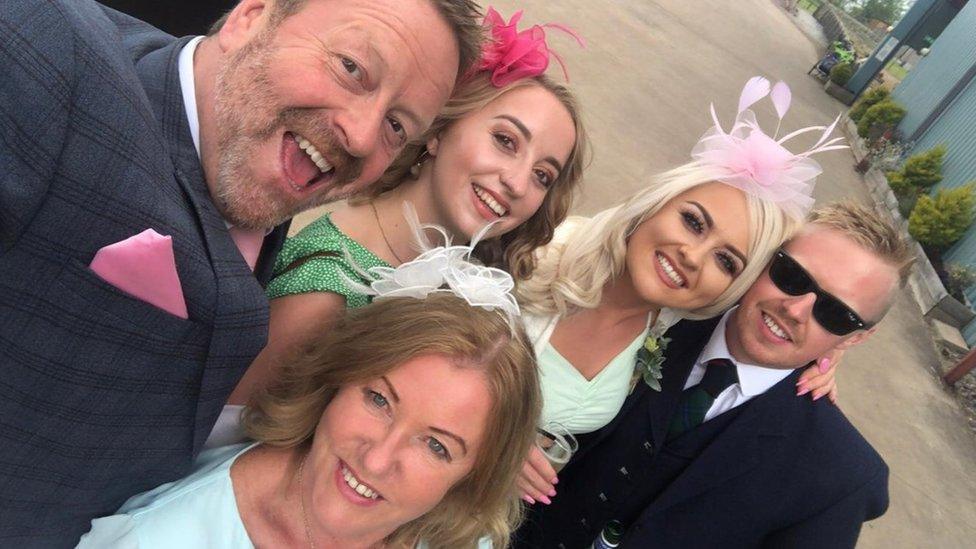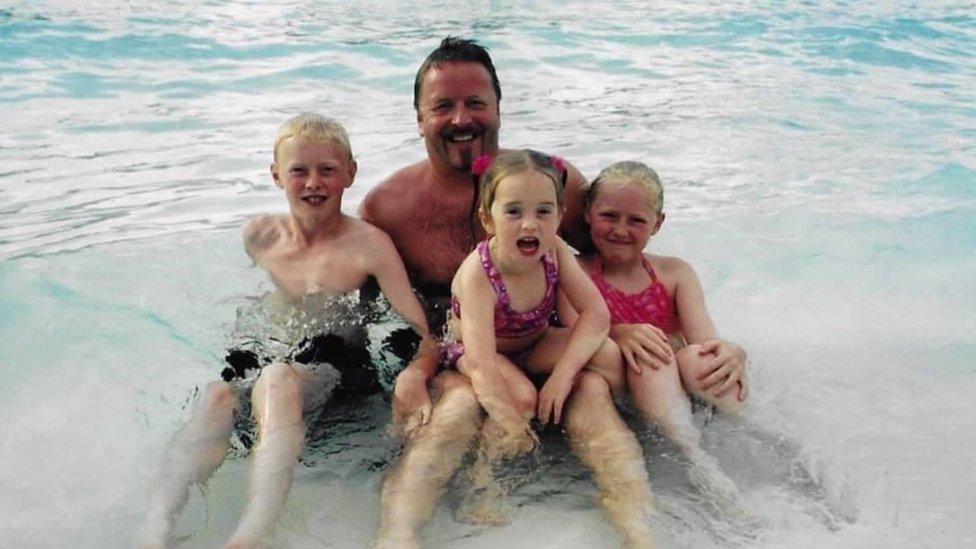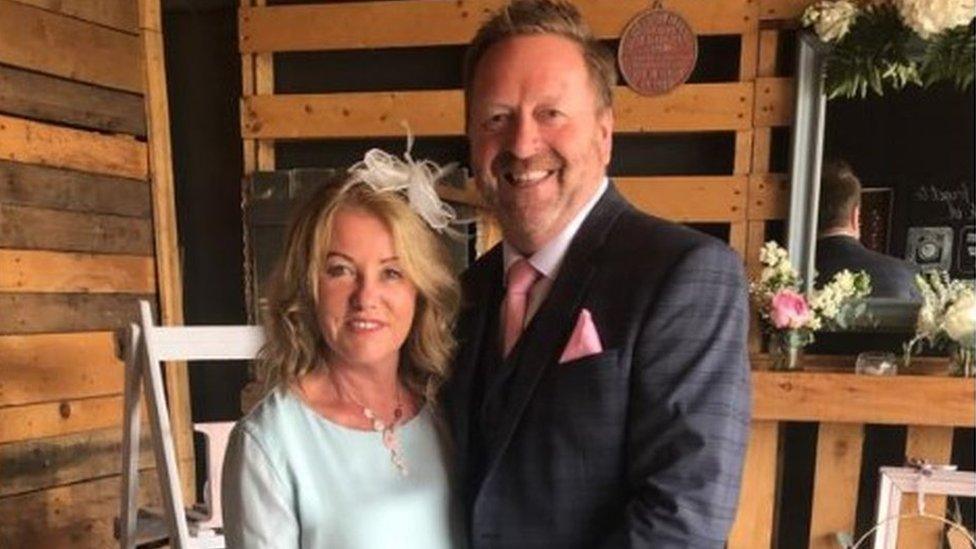Coronavirus: Family calls for review of 'unfair' funeral limits
- Published

Ian Jackson lived for his family and work
A bereaved Edinburgh family has questioned why no more than 20 mourners are permitted at a funeral when 50 people can now attend places of worship.
Ian Roderick Jackson died from cancer on 9 July, aged 59.
His family said they did not understand how dozens of people could now go into pubs but not funerals and appealed for the rules "to be made fair".
The Scottish government said the rules were still a necessary precaution, external.
Mr Jackson's funeral is planned for the end of next week but the rules are not due to be reviewed until the end of the month.
Mr Jackson's daughter Keanna Jackson, 23, said the large hall at Mortonhall Crematorium in the capital was larger than most pubs.
She said: "It's only fair if places of worship can have 50 households then I don't know why we can't have the same.
"I am devastated for my dad that his friends, who have known him longer than me, can't say their final goodbyes.
"We want a reason behind why funerals are different, it baffles us. We don't understand why you can pray but you can't mourn, it's really puzzling.
"The numbers seem to have been pulled out of thin air as well as the dates, it is crazy and doesn't make sense."

Ian Jackson with his three children Keanna, Channing and Jaimi on holiday when they were younger
The pharmaceutical rep and Scottish tour guide was diagnosed with skin cancer in March 2019 and then urothelial cancer.
He was still working, making calls to his clients up until a month before his death.
The "very outgoing" father-of-three was very well known in his community in Edinburgh's Craiglockhart.
Keanna said: "So many people knew my dad and want to be at his funeral to say their goodbyes."
Mr Jackson died at the Marie Curie Hospice in Fairmilehead.

Ian Jackson's widow said she is haunted her last goodbye was a kiss through her visor and mask
Keanna said: "We cannot fault the staff. What is haunting my mum though is that her last goodbye to my dad was a kiss through her visor and mask.
"We had to wear masks and then visors on the top and were not allowed to take them off even although he was in a room on his own on the ground floor with a balcony door so we didn't have to walk through the building.
"He spent months in isolation in hospital too during the lockdown, it was very sad for him.
"So for his friends to be able to say their goodbyes at his funeral would mean everything."
Mr Jackson leaves behind his wife Caroline and three children Keanna, Channing, 28, and Jaimi, 31.
Channing Jackson said she found it hard not to be able to have more people at her father's funeral when so many other freedoms were now allowed.
"Even to watch people go to get their hair done, how is it you can go to get your hair done but you can't attend a funeral? That seems madness to me.
"That's what I just can't seem to understand, you can have a pint, you can have a drink but you can't go see someone at their very end of life and give them the respect you want to give them."

Ian Jackson with his wife Caroline and three children Keanna, Channing and Jaimi
At the start of lockdown only close family members could attend funerals with a 2m physical distancing rule in force.
Some crematoria could take very few people, others could accommodate more than 40.
Last week the Scottish government lifted the restriction on who could attend beyond immediate family but said it should be no more than 20 people.
Bert Swanson, Inspector of cremations, said: "I can understand the frustration and when you compare some of these other premises and shops. I think funerals are probably in the eyes of many getting a bad deal."